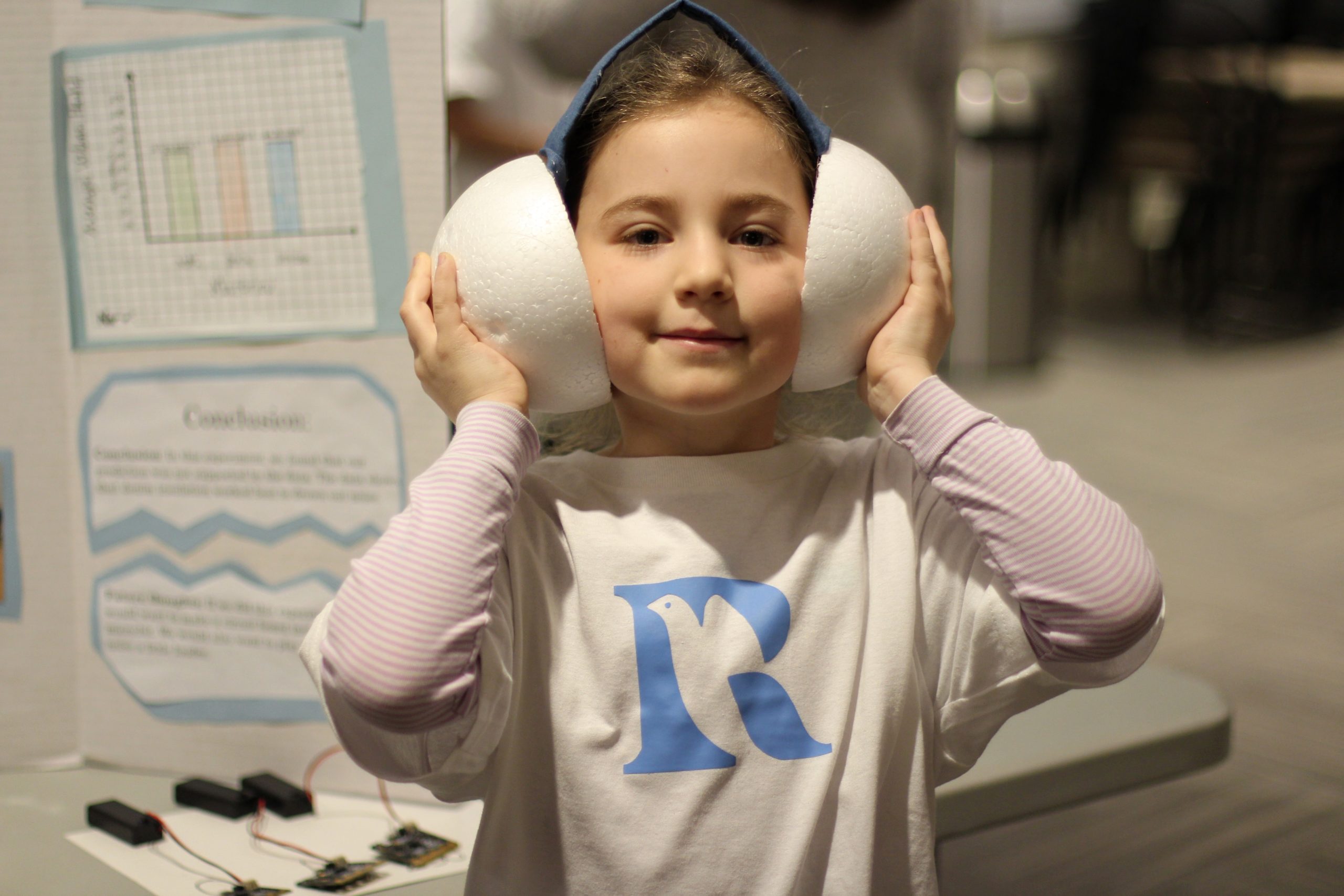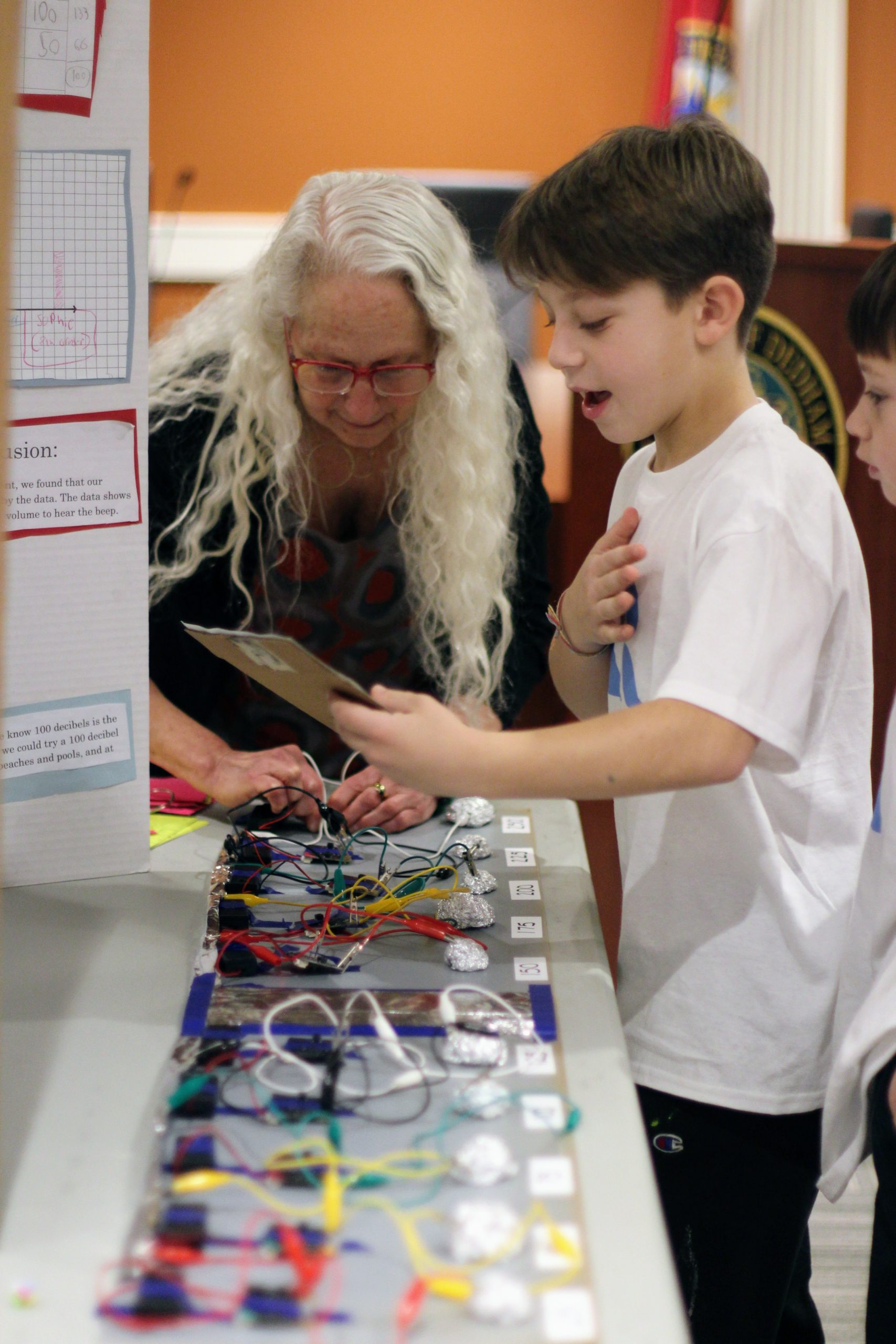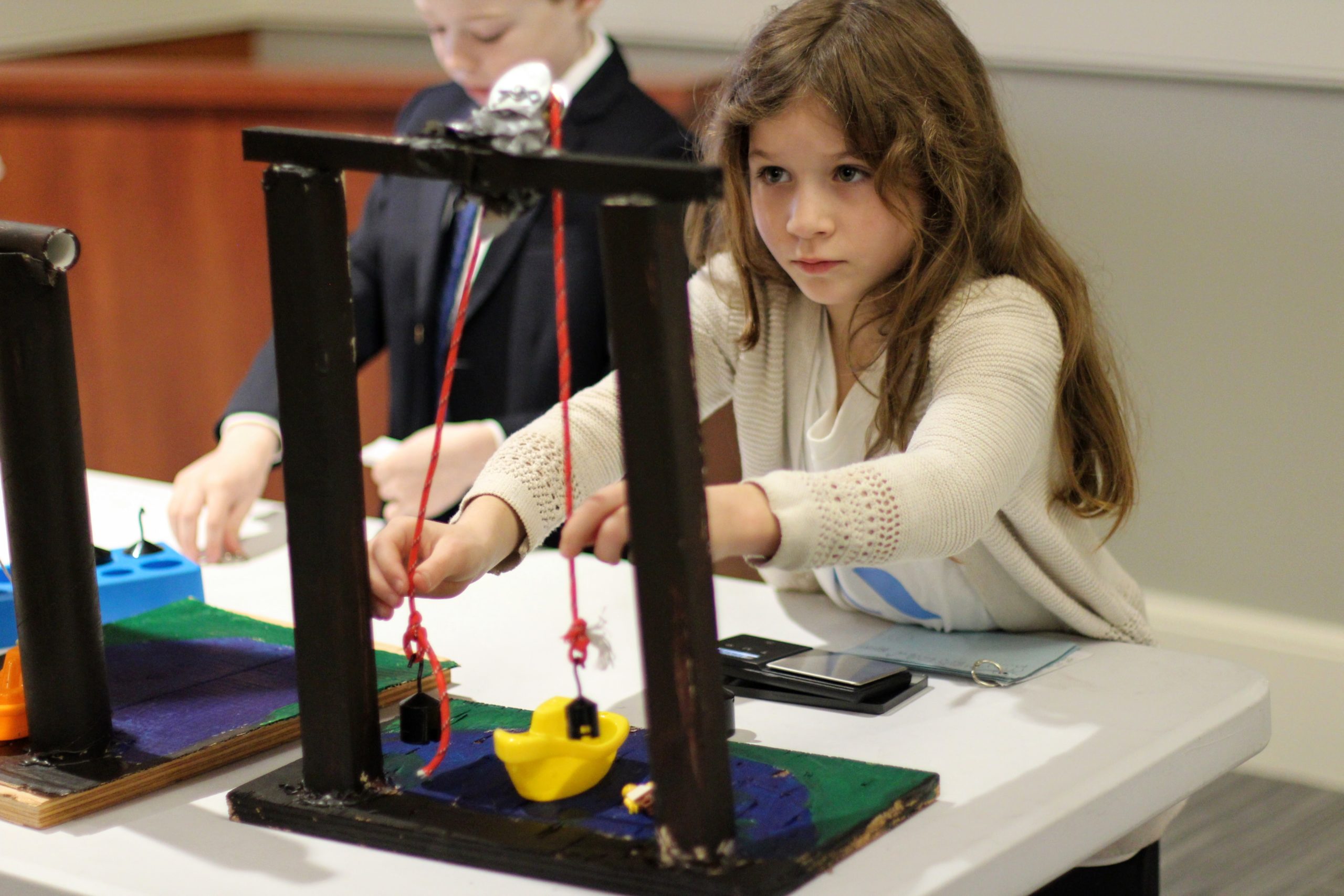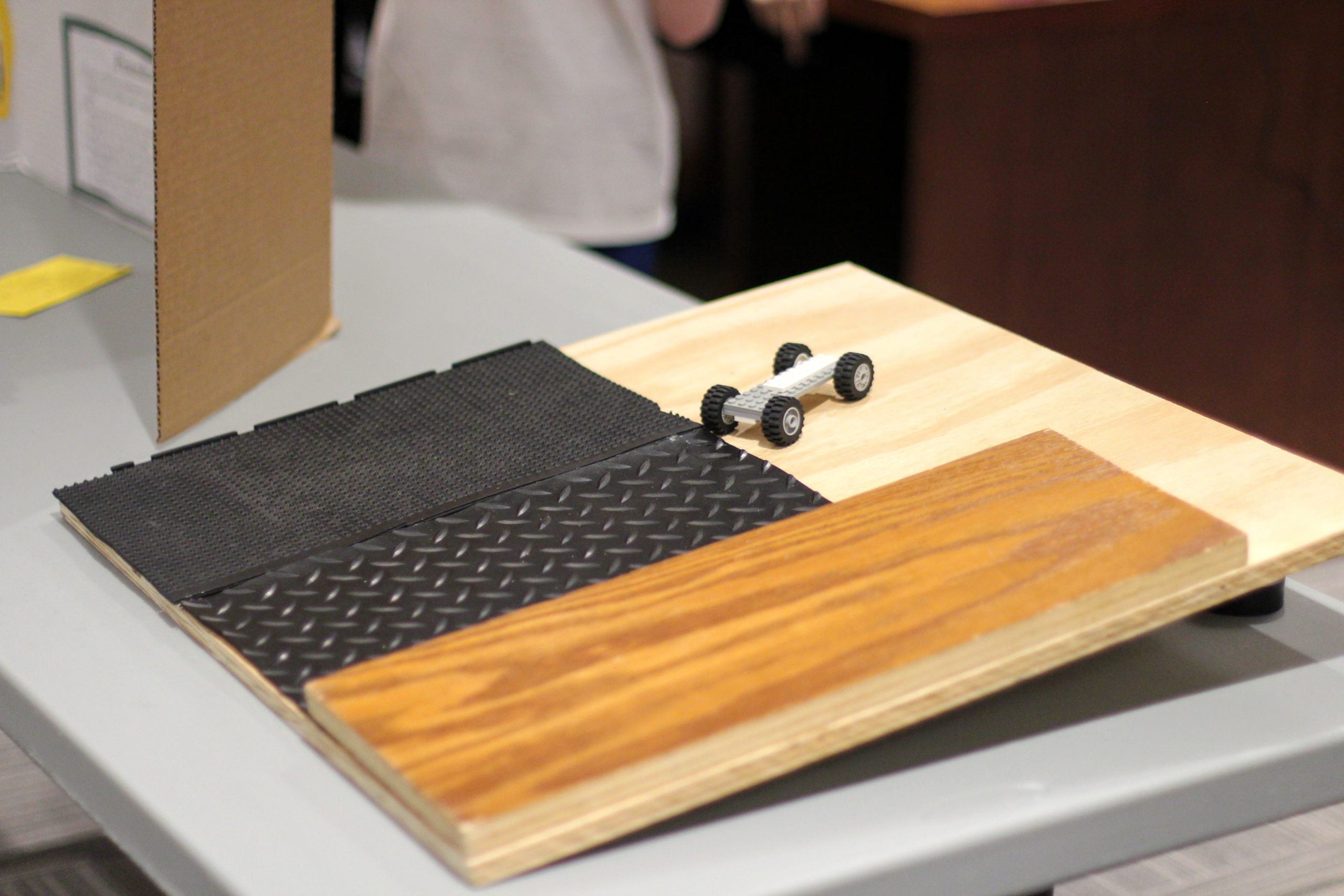After months of research, experiments, and prototyping, Rashi’s Grade 3 arrived at Dedham Town Hall to present their STEAM fair projects. Continuing their partnership with the Town of Dedham, which kickstarted with last year’s STEAM fair, students visited the local Wigwam Pond to see where they could make it more accessible for visitors with disabilities.

The theme of the fair was inspired by U.N. Sustainability and Development Goal 11, which focuses on building sustainable and inclusive cities. In addition, Grade 3 turned to their class question: how and why does movement happen? With these topics in mind, students worked with Town of Dedham Planning Director Jeremy Rosenberger and Senior Planner Michelle Tinger to look at an actual project site in Dedham as their case study: the Wigwam Pond Public Access & Recreation Plan.
After visiting the pond to survey the area, Grade 3 students met “clients” with varying accessibility needs, hearing personal accounts of the challenges they face in public spaces. Examples are poor access for those with mobility challenges, difficulty reading signs for people with low vision, or noise reduction for those with sensory issues.

In order to find solutions to these barriers, students ran experiments with simple machines and forces to construct working prototypes. The STEAM Fair culminated in creative, thoughtful presentations by 3rd graders to parents, Rashi faculty and staff, and Dedham Town Hall employees. “We made a more accessible boardwalk for those who are visually impaired,” explained Jared G. “We put bumps on the sides that made noise.”
“With coding, we set up Micro:bits in some tin foil. When the tinfoil is touched, it would make a beat,” said his teammate, Alex G.
Another group also tackled the boardwalk challenge, but for an alternate accessibility barrier. “We tested curved rubber, spiky rubber, and wood to see which had the most friction. This was to help elders with balance impairments,” said Paige R. “The best one was curved rubber.”
Other teams tested pulleys, mazes, and ramps, thinking about all the features found in a public park. “My group made a more accessible ramp by rolling a cardboard car down it at different angles. We wanted to see which one would be a good speed for a parent with a stroller,” said Julia M. “Thirty degrees was the best angle.”
Though some students expressed nervousness when meeting with town officials, the ability to partner allowed them to better understand Dedham’s vision for Wigwam Pond. They learned about the present plan for developing greater accessibility and ecological welfare, and received feedback from project and community leaders. “It’s amazing that we get to include children in this process,” said Project Manager Michelle Tinger.
“They were super nice, and their thoughts were helpful,” said student Paige R. Added Julia M., “The town planners gave my group advice on how to approach our experiment, and told us what we could try in the future to make it even better.”



